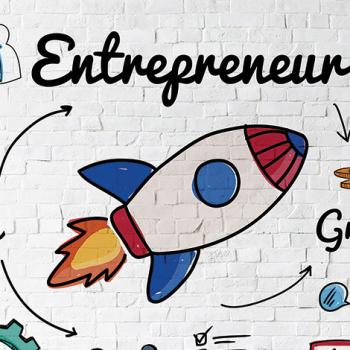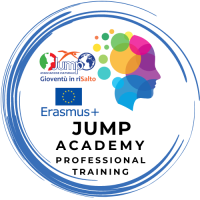
COACHING&MENTORING. Innovative Techniques For Teachers, Mentors And Educators To Fight Dropout And Motivate All
This course has the purpose to give the basic tools to help teachers be more aware of the variety of valuable roles they may have – apart from being subject teachers – and gain key competences to play a more active role in helping and motivating students.
Description
Teachers can be many figures inside one, we all know that today they are required to be multi-sectorial, transversal and super skilled. But at the base, the vocation to be a teacher coincides with the vocation to be a Mentor. The main difference is to be either a “professional mentor” or just a person taking care of some difficult situation of specific students and overcoming the border of “just teaching at school”.
On the other hand, Coaching is similar but at the same time, a different approach, with its own techniques.
Nowadays being a teacher doesn’t only mean to teach but it also means helping, supporting, motivating, being an active listener and a guide for students and colleagues. And that’s the reason why it is very important to be prepared to face any kind of situation that can arise in school environments. Schools are the mirror of society, sometimes of the small and the big context where the school is based, sometimes of the wider framework.
Most of the time teachers replace the figure of a coach or have to be more of a mentor than an expert in the subject. They enter students’ lives and constitute the biggest support together with families, becoming also an adult point of reference to be inspired from.
This course has the purpose to give the basic tools to help teachers be more aware of the variety of valuable roles they may have – apart from being subject teachers – and gain key competences to play a more active role in helping and motivating students.
The course starts making clear what the differences are between these two figures (the coach and the mentor) and also to understand which one can better fit each situation, in order to be able to use one or the other depending on the needs of the person we want to support, learning how to take care, guide and how to build a relationship of trust.
A coach can help a student to set goals, and give them the tools to achieve them only by using their own capabilities. A mentor is also a guide, a trustworthy point of reference or a model that can last for a longer time.
This course helps you to find ways to hand difficult issues back to the person (coachee/mentee) and to encourage them to find the solutions for themselves, through a process of empowerment. We aren’t aiming to teach you how to become a fully accredited coach or mentor, we are aiming to provide you with some highly effective coaching skills you will be able to put into practice in your life and daily work. It’s always very important to contextualize and each person can be a different kind of mentor depending on each specific situation.
In some contexts coaching and mentoring are used almost as interchangeable terms. Without a doubt, they are both valuable processes. It is true that the boundary between them is somewhat permeable and that often the same individuals in schools carry out or participate in both processes.
Active listening and asking powerful questions are at the base of these two supportive interventions, that is why the teacher will get to know how to ask effective questions, make beliefs become visible and support an empowering mindset, including the use of the Grow Model to support a pathway of self awareness and growth.
Learning objectives
- Understanding the differences and commonalities between coaching and mentoring
- Applying and integrating innovative methodologies at school to fight dropout and motivate all
- Learning about different techniques and tools according to specific educational needs of the target groups and contexts of work
- Using effective communication skills to build trustful and engaging relationships with students and improve the classroom management
- Supporting the development of empowering educational environments and mindsets, facilitating processes of self awareness and growth.
Methodology & assessment
Furthermore, in line with the JUMP Academy method, our courses are based on a strategic balance between formal and non-formal education, indoor and outdoor education and the team takes care of a very important aspect of international mobility which is the intercultural learning which we develop with short excursions and facilitating the interaction with local partners, businesses and citizens of our territory. Each local context has its own economy so it’s always useful, in training programs, to get in contact with concrete examples (experiential learning and real based learning).
We always try to connect our learners to local teachers and students to cooperate in developing innovation and networking for future projects.
Materials, digital tools & other learning resources
JUMP provides, after the completion of the course, all presentations, training materials and any other digital and learning tools used during the training sessions. Furthermore, extra materials are sent if there are updates and new ones researched afterwards.
Certification details
At the end of the training, JUMP delivers a formal certificate of attendance and the team is at disposal to fill the Europass certification document according to the EU model template and other needed documents for reporting of the sending institution.
Our courses are in line with the Erasmus+ Quality standards for courses under Key Action 1 (learning mobility of individuals)
Pricing, packages and other information
-
Course package content:
In the course fee are included: organization, administration, trainers' costs and classes, further training/learning materials, certification, support of the team H24, photo-video reporting.
Extra costs are referred to logistics. JUMP is sending all the precise info when the participants or the Erasmus coordinator ask for information.
-
Additional information:Description of the services and activities included in the course package (such as accommodation, meals, transport) or available at extra cost.
-
Cancellation & changes:
With a proper time in advance is possible to cancel the participation, informing and explaining the motivation.
-
Additional information:The options and conditions for change and cancellation, and the policy in case of unforeseen circumstances (force majeure).
Additional information
-
Language:English
-
Target audience ISCED:Primary education (ISCED 1)Lower secondary education (ISCED 2)Upper secondary education (ISCED 3)
-
Target audience type:TeacherSchool PsychologistTeacher Educator
-
Learning time:25 hours or more
Upcoming sessions
Past sessions
More courses by this organiser

COMMUNICATION IN THE NEW MULTICULTURAL SOCIETY. Understanding How Language Works To Improve Our Communication And Relationships With Others

ENTREPRENEURSHIP / FINANCIAL EDUCATION. Building Sustainability From Schools To The Labor Market


